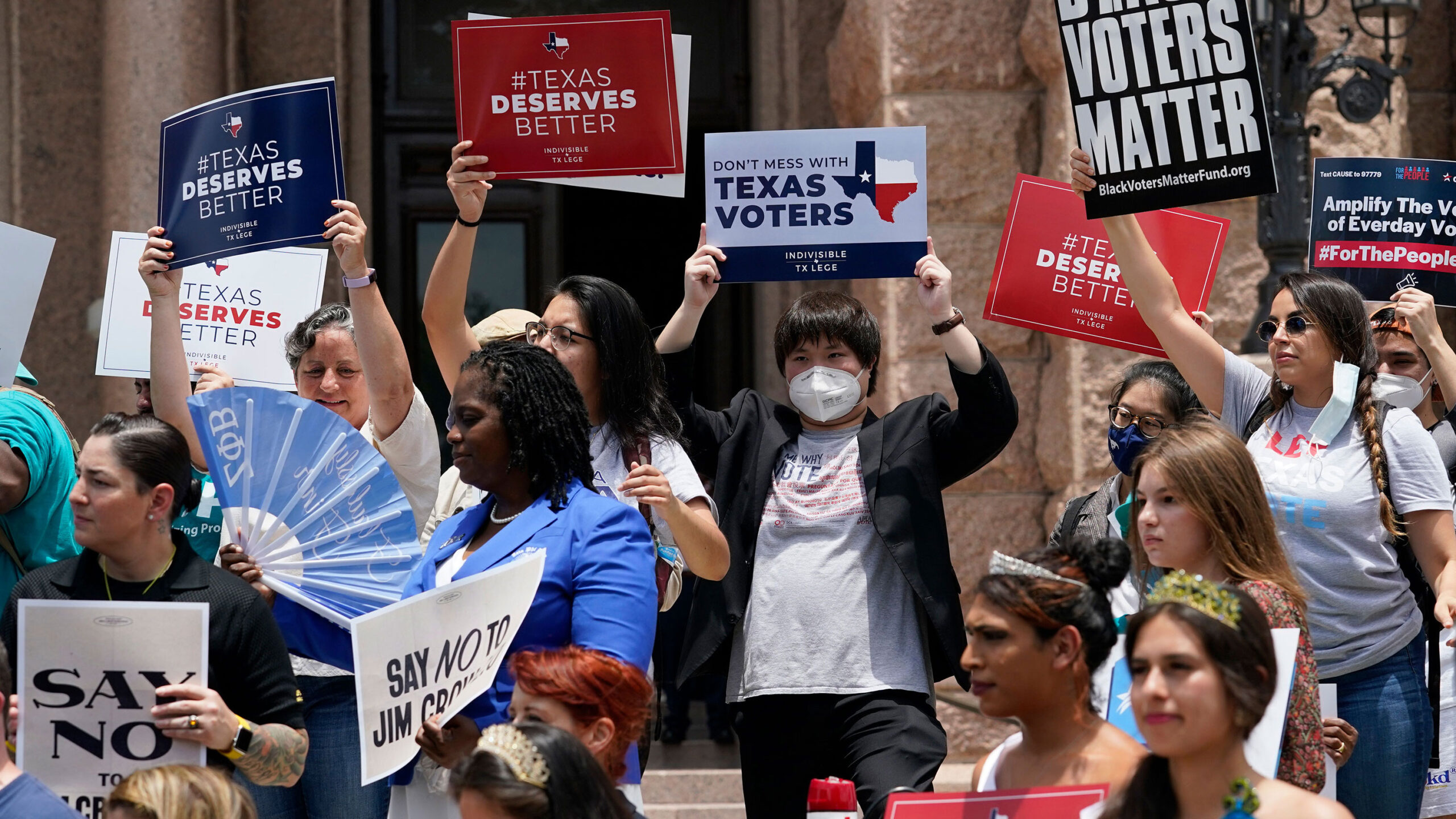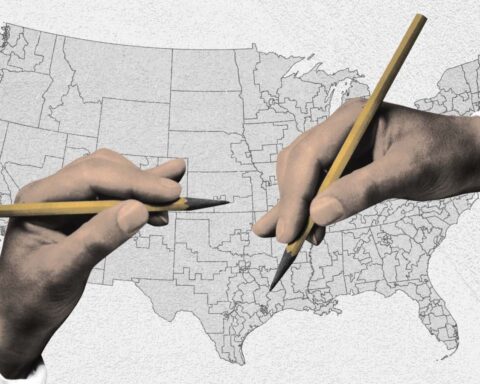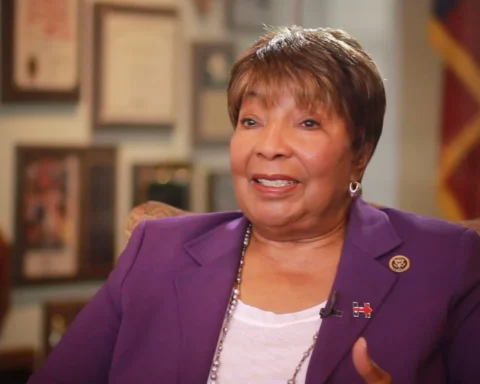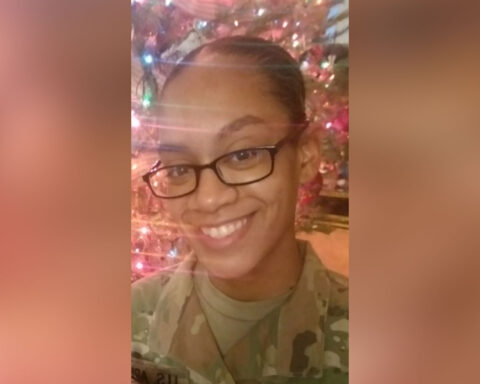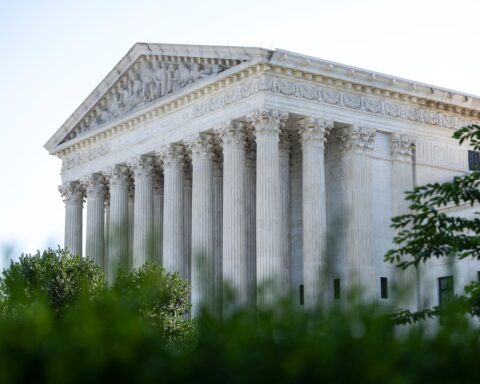Young voters and voting rights activists in Texas are protesting potential restrictive new voting laws in the state.
Topping their list of concerns, activists say, is a proposal that would stop expansive practices such as drive-through voting and 24-hour voting, which advocates say made it easier for young voters and voters of color to cast their ballot in 2020.
“Innovations from election offices provided new opportunity for young voters in 2020,” said Charlie Bonner, the 25-year-old spokesperson for MOVE Texas, a youth voter engagement organization. “We see bans on 24-hour and drive-through voting, which we know were disproportionately used by voters of color and young voters, as a direct attack, trying to silence the voices of young voters.”
A number of civic engagement organizations — including MOVE Texas, Common Cause Texas, Texas Rising, Voto Latino, Jolt Action, ACLU of Texas and the Texas Civil Rights Project — on Tuesday held a day of action at the Texas Capitol building.
One day after Texas House Democrats left the state, flying from Austin to Washington, DC, to break the state House’s quorum and block the bill, the activists aimed to send a message to lawmakers that young people in the state — who are increasingly more diverse than their older counterparts — will not back down when it comes to protecting their right to vote and voter accessibility, organizers said.
“A lot of my friends and peers are talking about this as an important issue,” said Katya Ehresman, a 22-year-old recent graduate of the University of Texas at Austin. “Some are kind of politically active, but more so, they’re just angry and affected.”
Ehresman, who spent 26 hours at the Texas Capitol this weekend and testified against the proposed measures, said her friends “remember struggling finding time to wait in line to vote and now anecdotally are (asking) why (lawmakers) would want to get rid of early voting or drive-in voting.”
One of Ehresman’s friends, Sarah Batson, utilized early voting this fall.
“Waiting after class for three hours is not an option for me as a busy college student with commitments throughout the day,” Batson — who is 20 and also a student at University of Texas at Austin — said, adding that she had an internship after school that took up most of the hours she could have used to vote.
Without the ability to early vote, “it would be much harder for me to choose to vote in every election,” Batson said, calling the “opportunity” to early vote “essential.”
‘A fundamentally anti-democratic attack on voting’
“We see this legislation as a direct attack on the massive increase in youth turnout we saw last year,” said Bonner, who helped register more than 50,000 voters between the ages of 18 and 30 ahead of the 2020 election with MOVE Texas.
In Texas, young people of color composed a clear majority of everyone who has turned 18 — thus becoming eligible to vote — since the 2016 election, according to census figures.
Bonner emphasized the increased diversity of young people in Texas and stressed the danger in limiting these voters’ access to the ballot box.
“Unfortunately we don’t have an electorate that matches the lived experiences of the folks here. We want to build an electorate reflective of the rich diversity of this beautiful state, but instead of we have these measures that seek to restrict access to make the smallest electorate possible to hold onto power,” he said.
Also on Tuesday, activists with Jolt Action, a group that looks to increase civic participation of Latinos in Texas, dressed in quinceañera attire during a news conference in front of the Capitol.
Like Bonner, Dr. Gloria Gonzales-Dholakia, the 48-year-old executive director of Jolt Action, said she believes the proposed bills — especially the elimination of 24 hour voting hours — are a “direct response” to the Black and Brown youth voter turnout in Texas in 2020.
“Those late night hours are primarily used by not only working class voters, but young voters and students. By restricting those hours, it’s a fundamentally anti-democratic attack on voting,” she said.
Gonzales-Dholakia, who was at the state Capitol on Tuesday, emphasized that young activists with Jolt Action protested to let lawmakers know they’re not giving up.
“Their message was that we’re here, our numbers are here, we’re powerful, we’re diverse and we’re not going to back down,” she said.
